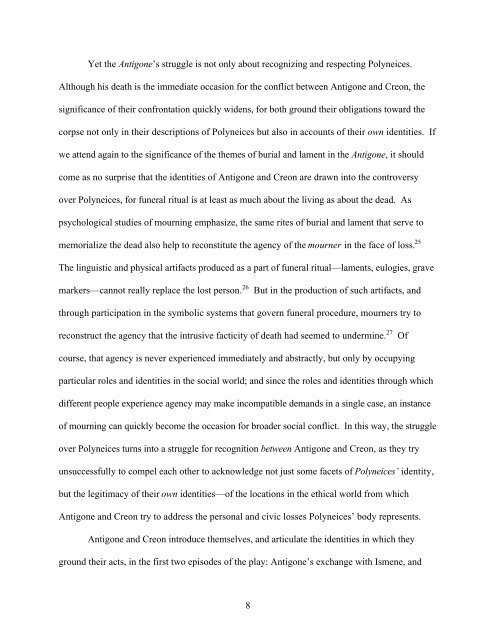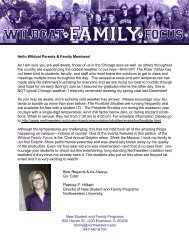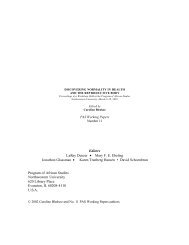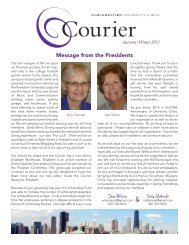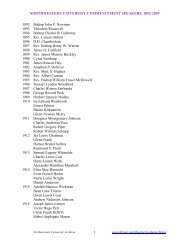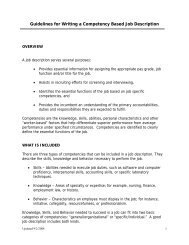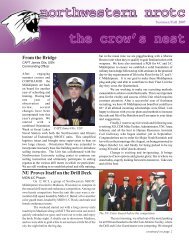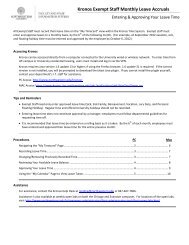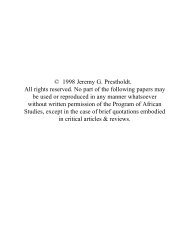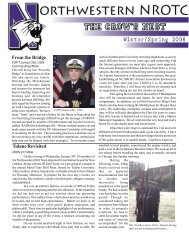TRAGIC RECOGNITION: ACTION AND IDENTITY IN ANTIGONE ...
TRAGIC RECOGNITION: ACTION AND IDENTITY IN ANTIGONE ...
TRAGIC RECOGNITION: ACTION AND IDENTITY IN ANTIGONE ...
You also want an ePaper? Increase the reach of your titles
YUMPU automatically turns print PDFs into web optimized ePapers that Google loves.
Yet the Antigone’s struggle is not only about recognizing and respecting Polyneices.<br />
Although his death is the immediate occasion for the conflict between Antigone and Creon, the<br />
significance of their confrontation quickly widens, for both ground their obligations toward the<br />
corpse not only in their descriptions of Polyneices but also in accounts of their own identities. If<br />
we attend again to the significance of the themes of burial and lament in the Antigone, it should<br />
come as no surprise that the identities of Antigone and Creon are drawn into the controversy<br />
over Polyneices, for funeral ritual is at least as much about the living as about the dead. As<br />
psychological studies of mourning emphasize, the same rites of burial and lament that serve to<br />
memorialize the dead also help to reconstitute the agency of the mourner in the face of loss. 25<br />
The linguistic and physical artifacts produced as a part of funeral ritual—laments, eulogies, grave<br />
markers—cannot really replace the lost person. 26 But in the production of such artifacts, and<br />
through participation in the symbolic systems that govern funeral procedure, mourners try to<br />
reconstruct the agency that the intrusive facticity of death had seemed to undermine. 27 Of<br />
course, that agency is never experienced immediately and abstractly, but only by occupying<br />
particular roles and identities in the social world; and since the roles and identities through which<br />
different people experience agency may make incompatible demands in a single case, an instance<br />
of mourning can quickly become the occasion for broader social conflict. In this way, the struggle<br />
over Polyneices turns into a struggle for recognition between Antigone and Creon, as they try<br />
unsuccessfully to compel each other to acknowledge not just some facets of Polyneices’ identity,<br />
but the legitimacy of their own identities—of the locations in the ethical world from which<br />
Antigone and Creon try to address the personal and civic losses Polyneices’ body represents.<br />
Antigone and Creon introduce themselves, and articulate the identities in which they<br />
ground their acts, in the first two episodes of the play: Antigone’s exchange with Ismene, and<br />
8


